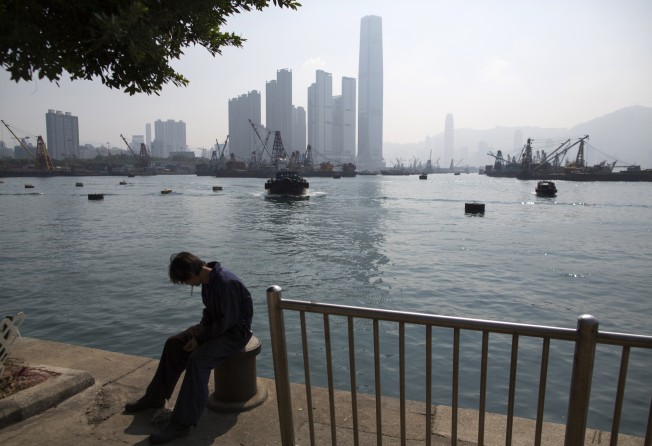Forget global leadership, the community needs to step up and bridge differences
Andrew Sheng says a world more divided than ever must live by mutual respect and tolerance

The Paris shootings shocked the world and signalled deeply polarised views. But why are views so polarised everywhere?
Syria is in a civil war, while 45 per cent of people in Scotland voted for separation from the United Kingdom. Factionalism, fanaticism and nationalism arise when people become insecure about their jobs, health and security.
The World Economic Forum has identified 10 top trends for 2015: deepening income inequality; persistent jobless growth; lack of leadership; rising geopolitical competition; weakening of representative democracy; rising pollution in the developing world; increasing occurrence of severe weather events; intensifying nationalism; increasing water stress; and growing health concerns.
The list can be simplified into three sets of divisive issues - economic, climate and environment, and social.
Poverty, unemployment, natural disasters and civil strife all give rise to insecurity, which is perhaps why 86 per cent of the people the forum surveyed thought there is a global lack of leadership. After all, when communities are insecure, it is the great statesmen or stateswomen who provide the vision and confidence to get through difficult times and hold people together.
Instead, we have an almost total disconnect between citizens and their governments. As the World Economic Forum has perceptively noted, "we have 19th-century institutions with 20th-century mindsets, attempting to communicate with 21st-century citizens". Small wonder that representative democracy is weakened when it is defined as the absolute freedom to elect or reject leaders with short-term agendas, pandering to the opinion of the moment.
Politics is supposed to be the art of the compromise, but in a global society, deeply divided by ideology, culture, religion, class or generation, it is not even clear that compromise will work.
Technology has been a major disruptor of the status quo. It is very cool to have the latest smartphone, but information is delivered so fast that there is as much disinformation and distortion of public opinion through Twitter and Facebook as manipulation by media channels. And governments cannot provide the leadership when they genuinely do not know better than the latest opinion polls or what big data is telling them on the web.
No less a statesman than Henry Kissinger, in his latest book, World Order, has bemoaned the absence of leadership. He perceptively points out that in the internet age, every netizen thinks that, with access to all kinds of information, justice and freedom can be demanded and will be available instantly. The young forget that what exists today is a confluence of history, culture, institutions and geography. Technology has cut the time to think, reflect and act.
We live today in a crowded space, made tolerable only because we are tolerant of each other. Absolutism and extremism in any religion, creed or culture can lead only to absolute or radical outcomes.
It is already an accepted fact in biology that monoculture makes for a fragile system. The most stable systems are open, diverse and adaptable.
In technology, as in real life, there is no one single path to God or nirvana. What works is fuzzy logic, the ability to bridge different technical standards, rules or systems. Fuzzy logic is about tolerance - for different standards, values and beliefs.
The need for humility and tolerance is greater than ever, because the familiar path of the past is no longer an adequate guide for an uncertain future.
The fourth estate - the media - used to play an important role as the channel through which relatively independent and informed opinions are presented for public debate. But, as the commercial basis of print media is being taken over by the internet, the web has become a jungle of commercial or issue-biased information, which in turn reinforces extreme views and action.
An open society is one which is tolerant of different views, but is moderate and humble in response to such differences.
There are of course limits to moderation and tolerance. When someone inflicts violence on others and threatens public security, there have to be consequences.
When individuals take the law into their own hands, there is no rule of law. But the law and the state can only do so much in restraining individual anti-social behaviour. The heavy hand of the state bureaucracy can have unintended consequences, which is why family and community are so important in reinforcing respect and tolerance.
Inequality has led to the breakdown of family values. Parents busy trying to make money or just living day to day neglect their young, delegating their education to others, including the internet. Should we be surprised if some of them end up being influenced by extremist views and take anti-social action?
It's time for parents and communities to take ownership and responsibility for their children's and their own future.
Andrew Sheng is writing on global issues from Asian perspectives